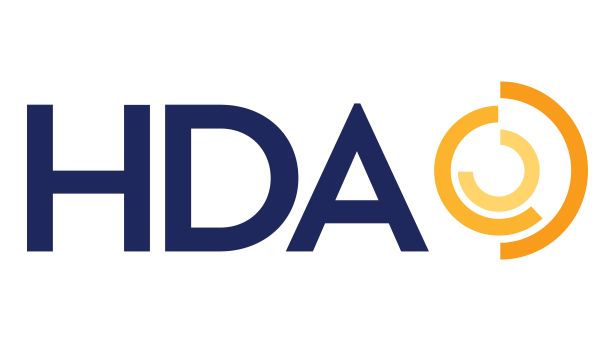HDA’s Chip Davis Discusses How to Build a More Resilient Global Supply Chain
HDA President and CEO Chip Davis participated in the Aspen Institute’s 2021 Aspen Security Forum as part of a panel discussion entitled, "Building a More Resilient Global Supply Chain."
Davis was joined by panelists Rep. Michael McCaul (R-Texas), Rep. Elissa Slotkin (D-Mich.) and Bruce Andrews, Corporate Vice President and Chief Government Affairs Officer at Intel. The discussion was moderated by Aspen Strategy’s Anja Manuel.
The twelfth installment of this annual event, hosted by the Aspen Strategy Group and Aspen Security Forum, brought together industry experts, public health leaders and elected officials to facilitate insightful conversations on a variety of the most pressing public health and national security issues.
Below are a few key insights from the discussion.
COVID-19 Response Showed the Resiliency of the Pharmaceutical Supply Chain
Davis opened the panel discussion by highlighting, “If you actually look at the overall healthcare supply chain, I would submit to you, and we’ve actually done a report on this, that the pharmaceutical supply chain was by and large very resilient and held up well [during the early pandemic supply chain crisis].” Davis cited the contrast between barren retail store shelves missing items like paper products compared to the pharmacy counters that remained stocked. Davis credited every component of the pharmaceutical supply chain for this reliability, from manufacturers to HDA distributor members to the frontline providers.
In examining the resiliency of the supply chain, Davis shared, “We were actually able to compensate for [pharmaceutical supply chain shortages]. For [roughly] 80% of the shortages, there was a secondary alternative available for that product in the United States.” HDA’s distributor members were able to leverage their geographic dispersion across the United States, data analytics capabilities and partnerships with federal and state governments to effectively move medications from distribution centers in areas that had not yet experienced high incident rates to those with more immediate needs.
Diversifying the Global Supply Chain and Increasing Domestic Manufacturing Can Minimize Risks
While discussing lessons learned from the COVID-19 pandemic response, Davis emphasized the importance of having a robust and diversified global supply chain of pharmaceutical products. Davis stated, “If we don’t systemically understand that there is actually some value to a global supply chain, and make sure we don’t unintentionally disrupt that global supply chain while trying to bring manufacturing back onshore, we might actually find ourselves worse off than better off.”
However, Davis said that while the U.S has maintained leadership in the R&D space, there is opportunity to bring manufacturing back onshore to minimize risks. On the issue of manufacturing, Davis cautioned there should be diligent efforts made to bring some manufacturing back to the U.S, especially in the generics space. Davis shared that “The place to start is to identify…a list of essential medicines. What are those things and where are the places that the federal government in a public-private partnership with everybody in the supply chain can identify our greatest vulnerabilities, and then to begin to create incentives...for that manufacturing to be increased, and ... for that increase to be reflected in whole or in part back here in the United States."
U.S. Rep. Slotkin provided perspective on this issue, pointing out that the U.S. could use manufacturing space in countries other than China to diversify the pharmaceutical supply chain, stating that “an untapped area is a coalition of countries looking at mitigating risk together.”
Building a Collaborative Environment is Crucial to Strengthening Supply Chains
Looking ahead, Davis reiterated that building a more resilient global supply chain will require “the three C's: communication, coordination and collaboration.”“I think the combination of having honest discussions around an industrial policy framework combined with a national security framework and making sure those two things are running in parallel, very closely tied and tethered together, is going to be what makes the most impact,” Davis said. Davis praised the pharmaceutical supply chain for checking competition at the door when supporting pandemic response efforts to effectively collaborate with others in the supply chain along with federal and local governments.
The full event recording is available here. For additional HDA materials and pandemic response resources, visit our website.
